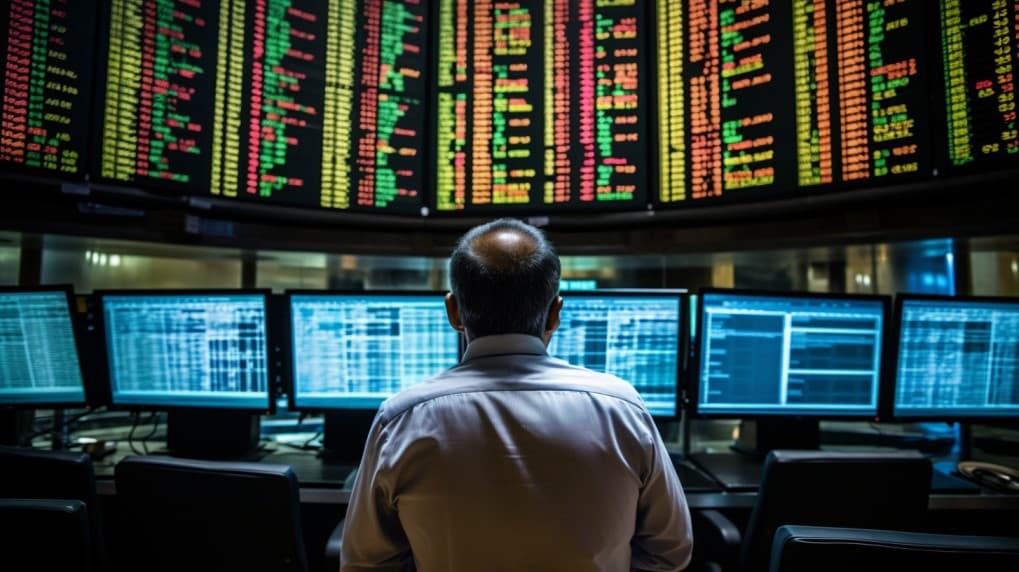
BLCN Vs GDLC: Diversification Benefits
Investing in exchange-traded funds (ETFs) has been a popular strategy to gain broad exposure to different sectors or asset classes. Among the emerging trends, blockchain and digital assets have caught the eye of investors. The question then arises, which investment vehicle should one choose between BLCN and GDLC? In this article, we break down the two and highlight the key differences to help you make an informed decision.
BLCN Vs GDLC: Overview
Before diving deep into the distinctions, it's essential to provide a brief overview of each fund. BLCN is a blockchain-focused ETF, while GDLC is a digital asset fund that includes cryptocurrencies like Bitcoin and Ethereum.
BLCN Issuer
Reality Shares is the issuer behind BLCN, also known as the Reality Shares Nasdaq NexGen Economy ETF. The ETF tracks the Reality Shares Nasdaq Blockchain Economy Index, focusing on companies that are committing resources to developing, researching, and implementing blockchain technology.
GDLC Issuer
Grayscale Investments is the asset manager behind the Grayscale Digital Large Cap Fund (GDLC). Unlike a traditional ETF, GDLC operates as a trust, holding a diversified basket of large-cap digital currencies. Grayscale has been a pioneer in offering cryptocurrency-based investment products.
BLCN Vs GDLC: Asset Allocation
BLCN aims at companies in the blockchain space, which means its holdings are generally equity shares of public companies. On the other hand, GDLC holds cryptocurrencies directly, making it a riskier but potentially more rewarding proposition.
The risk profile between BLCN and GDLC differs significantly. Investing in BLCN exposes you to the market risks associated with equities, albeit in a nascent technology sector. GDLC, being a digital asset fund, exposes investors to the highly volatile and speculative market of cryptocurrencies.
 BLCN overlap BLCN VS GDLC: A Comprehensive Comparison of ETFs
BLCN overlap BLCN VS GDLC: A Comprehensive Comparison of ETFs
BLCN Vs GDLC: Regulatory Framework
BLCN operates under the traditional ETF framework, making it subject to rigorous regulations. GDLC, not being a true ETF, navigates a different regulatory environment. Therefore, investing in GDLC might present some additional risks and complexities, especially for investors not familiar with the digital asset space.
BLCN Vs GDLC: Diversification Benefits
When it comes to diversification, BLCN offers a more balanced approach, holding shares of various companies with blockchain initiatives. GDLC, although diversified among leading digital assets, exposes investors solely to the digital currency space.
BLCN Vs GDLC: Dividend Payments
BLCN holds equities and may pay dividends, although they are likely to be minimal given the emerging nature of the blockchain sector. GDLC, holding only digital assets, does not pay dividends.
BLCN Vs GDLC: Performance Metrics
Performance metrics like historical returns and volatility may differ between the two. While BLCN's performance will be tied to the blockchain sector and broader equity market, GDLC's performance is tightly bound to the performance of digital currencies it holds.
BLCN Vs GDLC: Accessibility and Trading
Both BLCN and GDLC are easily accessible to investors. BLCN can be bought and sold on traditional stock exchanges, whereas GDLC is an over-the-counter (OTC) product, which means you can buy it through brokers that offer OTC trading.
BLCN Vs GDLC: Conclusion
In the end, the choice between BLCN and GDLC boils down to your investment objectives, risk tolerance, and interest in either the blockchain technology sector or the digital asset market. Both offer unique opportunities, but they also come with distinct risks and regulatory considerations. Always consult with a financial advisor before making any investment decisions in these rapidly evolving sectors.
BLCN ETF issuer
BLCN ETF official page
BLCN quote and analysis
Discover the top holdings, correlations, and overlaps of ETFs using our visualization tool.
Our app allows you to build and track your portfolio.
To learn more about the BLCN Siren ETF Trust Siren Nasdaq NexGen Economy ETF, access our dedicated page now.